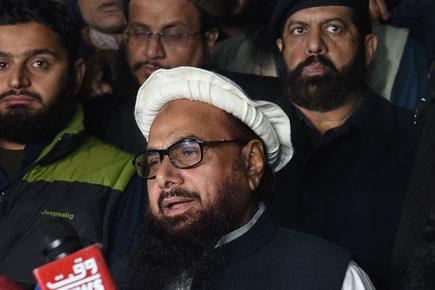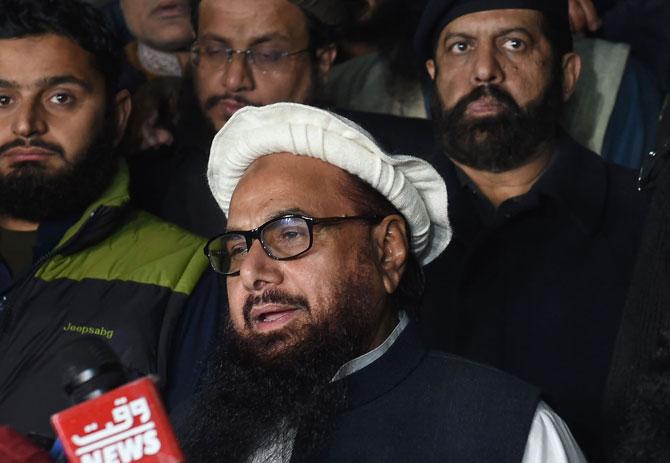Hafiz Saeed's house arrest was in Pakistan's "larger interest" as he can pose a 'serious threat' to the country, Defence Minister Khawaza Asif has said in the first public admission of the JuD chief's terrorism links

 Hafiz Saeed. Pic/PTI
Hafiz Saeed. Pic/PTI
ADVERTISEMENT
Islamabad: Hafiz Saeed's house arrest was in Pakistan's "larger interest" as he can pose a 'serious threat' to the country, Defence Minister Khawaza Asif has said in the first public admission of the JuD chief's terrorism links.
Asif's remarks about the danger posed by the mastermind of the 2008 Mumbai attacks - in which 166 people died - came at an international security conference in Munich, Germany. "Saeed can pose a serious threat to the society," Asif told the audience at the Munich Security Conference on Sunday, The Nation reported.
Saeed was "arrested in the larger interest of the country", he added. Saeed was placed under house arrest under the fourth
schedule of the Anti-Terrorism Act (ATA) on January 30 in Lahore, provoking an uproar from his party and allies. Saeed's inclusion in the list shows he is linked with militancy in some way. Saeed was earlier this month put on the Exit Control List, barring him from leaving the country.
Saeed was also put under house arrest after the Mumbai attacks in November 2008, but he was freed by a court in 2009. He carries a reward of USD 10 million announced by the US for his role in terror activities.
During a panel discussion on countering extremism and terrorism, Asif said: "Terrorism is not synonymous to any religion. Terrorists aren't Christians or Muslims or Buddhists or Hindus. They are terrorists, they are criminals." Pakistan was hit by at least eight terror attacks this month in which more than 100 people died, the latest being a suicide bombing on a famed Sufi shrine in Sindh province that claimed 88 lives.
In a statement critical of the American policies, Asif said Pakistan is determined to fight terrorism: "Let me assure the world community that Pakistan is a frontline state in this war and it will continue to fulfil its obligations to its own people and the international community but if the West's policies are going to be isolationist it won't help the fight against terrorism, only fuel it."
 Subscribe today by clicking the link and stay updated with the latest news!" Click here!
Subscribe today by clicking the link and stay updated with the latest news!" Click here!






